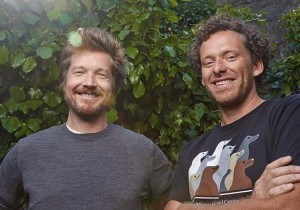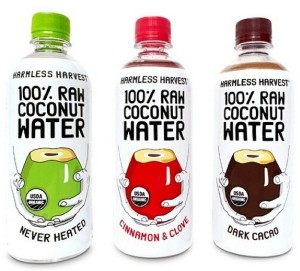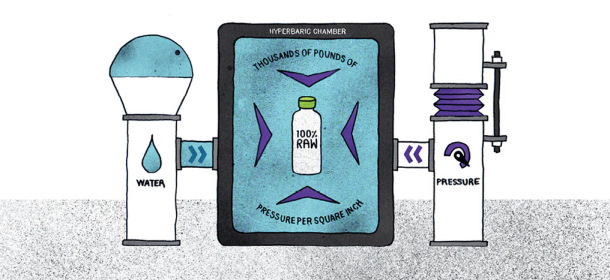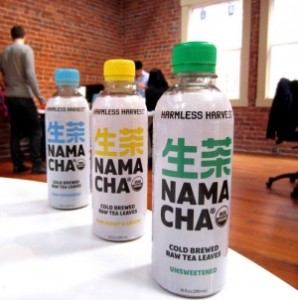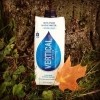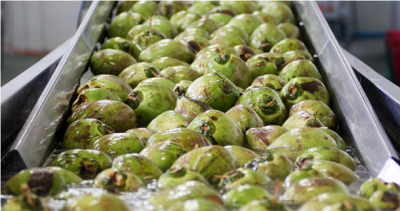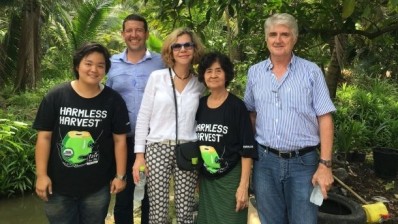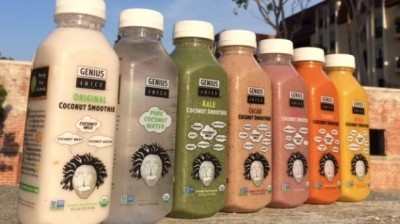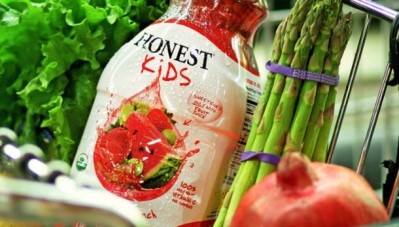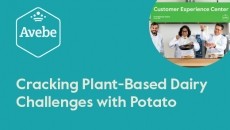'Consumers are willing to pay more for better quality as long as that quality is tangible'
Harmless Harvest raw coconut water: We’re not competing with Vita Coco or Zico
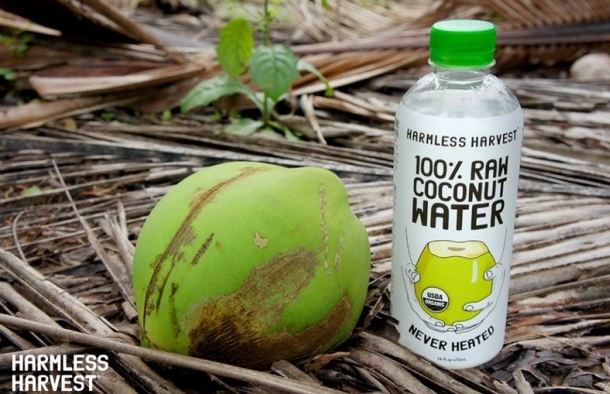
And the world hasn't gone mad, said Guilbert, who cut his CPG teeth at L’Oreal before teaming up with Douglas Riboud (a corporate finance expert he met at business school in France in 2002/3) to create Harmless Harvest in 2009.
In fact, consumers coughing up $4 or $5 for raw coconut water are making a simple decision about what they value, he told FoodNavigator-USA. “The American consumer, regardless of disposable income or sophistication, is willing to pay more for better quality as long as that quality is tangible, if your product is distinctively superior.
“People ask if there a sweet spot on price, or a ceiling, and I say that there is no negative elasticity of price if there is value to every penny that you are asking for. Some cold-pressed juices retail at nearly $10 and people are willing to pay for them.”
He added: “People used to think that food should be cheap but that mentality has changed dramatically in recent years. American consumers want access to better food. When people look at my product and say that’s expensive, I say no, it’s the others that are cheap; this is the price for a good product.”
There is a noticeably different taste
But does raw coconut water really taste so much better?
Er, yes, said Guilbert, although the choice of coconuts is also critical: “We use a specific varietal of coconut specific to a region in Thailand and we contract with our farmers directly.”
As for the HPP: “You taste our product and there is an immediate distinction. It’s noticeably different. We wanted to reverse that hierarchy you see in consumer goods of brand over product. We’re all about product, product, product.”
And for the first 18 months, working out how and where to make the product and get it to market was pretty much all they worked on, said Guilbert (using pressure instead of heat to pasteurize posh beverages might be all the rage these days, but back in 2009, they were in a field of one).
Two years later, they launched the first ‘raw’ coconut water (treated with HPP rather than flash pasteurized) in the US, and within a couple of years, their products were gracing shelves in thousands of stores nationwide, from Whole Foods Market to Kroger and Costco.
We’re not really competing with Vita Coco or Zico
So where does Harmless Harvest - which is based in San Francisco - sit within the broader coconut water market, which is dominated by big brands such as Vita Coco, Zico (backed by Coca-Cola) and O.N.E. (backed by Pepsi)?
According to Guilbert: “We’re not really competing with Vita Coco or Zico. It’s a different product, a different supply chain and a different story. We’re a perishable product.”
He won’t disclose sales figures, but some numbers speak for themselves, he said: “In 2010, the company consisted of two guys [himself and Riboud]. Today we’re about 300.”
Municipal water mixed with boiled syrup is not coconut water
But what about sustainability? Is it environmentally responsible to transport coconut water - which is pretty heavy - all the way from Thailand to the USA? And if you are going to do it, wouldn’t it be better to ship it as a concentrate, then add water at the end of the process?
Some firms have gone down this route, he observed, but they’re selling a completely different product: “Sure, concentrate weighs less to transport, but municipal water mixed with boiled down syrup is not coconut water.”
Meanwhile, sustainability is also about your social impact - creating and safeguarding jobs for people that grow and process your raw materials - says Guilbert, who contracts directly with Thai growers and has set up a facility in Thailand to bottle the product on site, in-house, before it is transported to the US to go through the HPP process.
“We’re in a global market, so we’re working within that model and trying to do it right, paying fair wages for our workers, but we’re also using the Fair for Life certification process where audits certify fair sourcing practices, traceability of all certified products, and that all members of a company’s staff have decent working conditions.”
Coke was a one-trick pony for its first 60 years
So what’s next for the company on the innovation front?
Harmless Harvest has recently launched a highly unusual cold-brewed, HPP-treated ‘raw tea’ product at Whole Foods called Namacha, but it’s not interested in SKU-proliferation for the sake of “trying to secure real estate on shelf”, said Guilbert.
“I see people going from two SKUs to 20 in a year, and I honestly don’t understand it. Some people might call us a one trick pony, in that we’ve basically been doing the same thing for four years, but I’d point out that Coke was a one-trick pony for its first 60 years.
“If you need to find 20 other products to put on the shelf, then your first product wasn’t good enough. Being a specialist is nothing to be ashamed of. Our next product has to be as good as the first one, to reflect the same amount of effort and dedication to building the category, or it’s not worth doing.
“We could bring out 30 new SKUs tomorrow, and we’d probably gain some distribution because of the halo effect of our brand, but we wouldn’t be bringing any value to the category.”
Tea leaves: Pick them fresh, freeze them, pulverize them and brew them. No one does this.
He adds: “We have to be ahead of the curve, so with Namacha we thought why not brew tea with raw, fresh tea leaves? Pick them, freeze them, pulverize them and brew them. No one does this.
“The standard thing is to dry tea leaves and brew them. But if you don’t dehydrate the leaf, the tea tastes completely different, it’s bolder, stronger, it’s a unique product with unique organoleptic properties.
“Honestly I think it is going to take us a while to explain what it’s all about. But it’s taking tea to a whole new level.”
Click HERE to read more about Harmless Harvest.
Interested in new beverage trends?
Register FREE for our online Beverage Innovation Summit on February 4.
